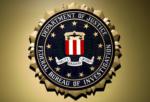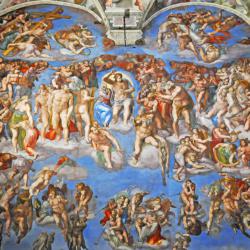Proposal to lift statutes of limitation called 'prejudicial' to church
PHILADELPHIA (CNS) -- Philadelphia's archbishop said a proposed bill aimed at retroactively lifting the statutes of limitation for civil lawsuits in child sex abuse cases "poses serious dangers" for the parishes, ministries and charities of the archdiocese.
H.B. 1947, the measure under consideration in the state Senate, "is retroactive for private and religious entities, but not retroactive for public institutions," said Archbishop Charles J. Chaput in a letter read at all parishes the weekend of June 4 and 5.
The archbishop asked Catholics to write to their state senators urging them to oppose the bill.
"All of us are rightly angered by the crime of sexual abuse," he said in the letter, written in English and Spanish. "Over the past decade, the church has worked very hard to support survivors in their healing, to protect our children and to root this crime out of church life."
However, he continued, "H.B. 1947 and bills like it are destructive legislation being advanced as a good solution."
Archbishop Chaput said the problem with the bill is "its prejudicial content."
"It covers both public and religious institutions -- but in drastically different and unjust ways," he said. "The bill fails to support all survivors of abuse equally, and it's a clear attack on the church, her parishes and her people."
Senate hearings on the measure were to begin on or around June 13.
Currently, Pennsylvania law allows criminal cases to be brought up to the victim's age of 50, and civil lawsuits up to the victim's age of 30. Statutes of limitation, a legal principle intended to ensure fairness, encourage suits to be filed within a certain time frame. The statutes bar suits reaching back many decades because witnesses may be dead or otherwise unavailable, memories may dim or change, and evidence may not be intact or available.
H.B. 1947 calls for abolishing all criminal statutes of limitation on child sexual abuse in future cases -- a provision that the Catholic Church in Pennsylvania does not oppose.
The bill also calls for lifting statutes of limitation until the victim reaches age 50. That provision is retrospective -- plaintiffs could "look back" into an abuse case from decades ago and file suit against any private organization in the state. That includes religious organizations and individual churches, youth organizations, sports leagues and other private entities.
One provision of the bill would lift the statutes of limitation on public institutions such as school districts but only prospectively -- going forward, not looking back. The current law would remain in force regarding monetary caps on settlements against public entities found to be grossly negligent in protecting minors from abuse: $250,000 per plaintiff or $1 million in total related claims for state agencies, and $500,000 for local and county agencies, including school districts.
Private organizations would face damages in unlimited amounts.
The bill appears to establish two classes of victims. Under current law that would pertain under the new bill, people whose abuse occurred in a public organization must file their lawsuit within six months of the alleged abuse. Under H.B. 1947, victims within a private organization could file suits decades later.
In mid-May, about 350 priests and deacons of the Archdiocese of Philadelphia attended two sessions to inform the clergy about pending state legislation to life the statutes of limitation on child sex abuse cases.
In turn, archdiocesan spokesman Ken Gavin said, parishioners would learn from their pastors about the issue "in a comprehensive way," including "a great deal of information that's been absent from the public discussion."
CatholicPhilly.com, the archdiocesan news website, reported that media attention on the issue has tended to voice proponents' arguments for the legislation as a way to give victims of sexual abuse the ability to sue the church and other organizations as a means of healing from their experience and to force the church to change how it handles matters of sexual abuse.
Gavin said it was an "overlooked fact" that the Catholic Church "has accepted responsibility for past abuse. It has worked very hard to support survivors and prevent abuse from taking place," he told CatholicPhilly.com
He pointed out the archdiocese had offered $13 million in aid to victims since 2002. Information from the archdiocese shows about $1.5 million is spent each year on services that included counseling, medication, reimbursement of travel and childcare expenses, vocational assistance and other forms of support.
A survivor's independent counselor or therapist indicates the needs of his or her client, and the archdiocese's Victims Assistance Program meets those needs for the individual and family members regardless of when the abuse occurred and without limitation on how long the services are needed, according to Gavin.
Archbishop Chaput's letter to Catholics was accompanied by a document in English and Spanish detailing steps the Philadelphia Archdiocese has taken to meet the needs of victims of clergy sexual abuse and to prevent future abuse of any child.
The website of the Pennsylvania Catholic Conference, www.pacatholic.org, also has information on H.B. 1947. The conference is the public policy arm of the state's Catholic bishops.
Archbishop Chaput called it "a serious and time-sensitive matter."
"This is not justice," the archbishop said about H.B. 1947. "(It) actually excludes most victims. And it also targets innocent Catholic parishes and families, like your own, who will bear the financial burden of crimes committed by bad individuals in the past, along with the heavy penalties that always result from these bad bills."
"The church in Pennsylvania accepts its responsibility for the survivors of clergy sex abuse. It's committed to helping them heal for however long that takes," he said. "But H.B. 1947 and bills like it are not an answer."
- - -
Contributing to this story was Matt Gambino, director and general manager of CatholicPhilly.com.


















